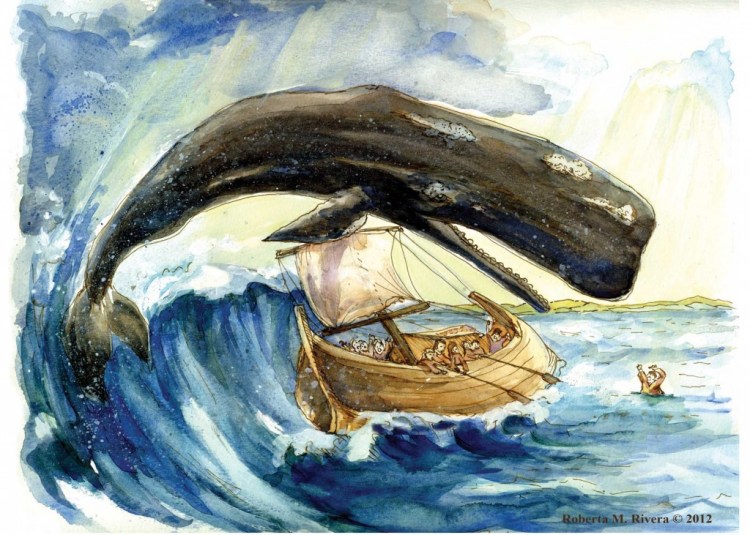I love that God is always on the move, working in us and around us, even in spite of our failures to acknowledge Him or act in ways that don’t honor Him.
Case in point: Jonah.
Jonah—the successful Israelite Prophet—paid the fare to sail from Joppa to Tarshish. In his justified rebellion, he thought if he could run as far as possible from where God’s tangible presence rested, on His people and in His temple, He might escape a convicting one-on-encounter with God. So not only did he refuse to follow God’s order to go to Nineveh to preach, but also set out on a 2,000 mile journey in the opposite direction.
As Jonah crashes (sleeps) in the hold of the ship, God whips up a furious storm. The pagan sailors—from a polytheistic culture—cry out to their gods, whom they believe not only control a part of nature, but also are easily offended. Just maybe the sailors could garner forgiveness for any spiritual offense they unknowingly made.
The storm, however, rages on. So they toss all the cargo overboard in hopes to stay afloat. But that doesn’t help either. What about that mysterious sleeping guy, completely oblivious to their peril? They rouse him. “What’s this? Sleeping! Get up! Pray to your god! Maybe your god will see we’re in trouble and rescue us,” (Jonah 1:6, MSG). Upon drawing lots, Jonah receives the short straw and finally fesses up: “I’m a Hebrew. I worship God, the God of heaven who made sea and land” (vs. 9).
Terrified from the realization that Jonah is on the run from this powerful God, the sailors make every effort to abort Jonah’s suggestion of throwing him overboard to calm the sea. But the wind and waves only worsen.
Despite Jonah’s rebellion and detachment from caring about the sailors, God uses the storm and Jonah’s words—which don’t align with his actions—to show them who God is. So they cry out to the Lord God and ask Him to not hold their actions against them as they throw Jonah overboard. You know the rest of the story.
 Was Jonah ashamed to tell the sailors more about his God? He certainly wasn’t acting as a good representative. They were the ones to rouse him and ask him to pray. But before we pounce on Jonah too much, what about us? Do our words and actions accurately reflect the holiness and grandeur of God? If I’m honest, there have been times when unbelievers have acted more Christlike. . . . Ouch!
Was Jonah ashamed to tell the sailors more about his God? He certainly wasn’t acting as a good representative. They were the ones to rouse him and ask him to pray. But before we pounce on Jonah too much, what about us? Do our words and actions accurately reflect the holiness and grandeur of God? If I’m honest, there have been times when unbelievers have acted more Christlike. . . . Ouch!
Just How important is it for believers to point others to God and His holiness through words and actions? When Jesus’ disciples asked Him how to pray—after clarifying whom to pray, “Our Father”—Jesus instructs them to pray: “Hallowed be Thy name.” But what exactly does this mean? My pastor, Cliff Purcell, explains the meaning and application of these words. You may listen to his podcast—“A Family Conversation – Week 3 (Jan. 28, 2018)”—here: Our Father, “hallowed” . . . what’s that?
Have a great week!